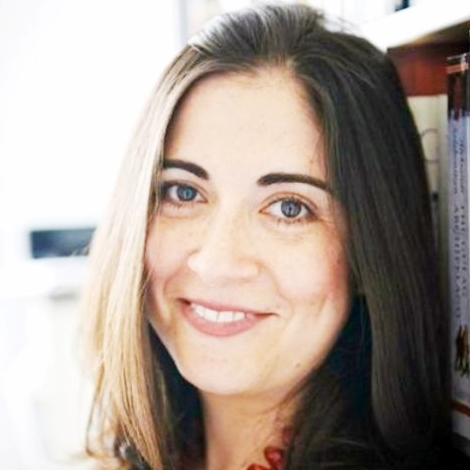
SA

Mainstream Jewish community doesn’t represent all Jews
MOIRA SCHNEIDER
A recently-launched extensive study on identity in the South African Jewish community aims to fill gaps in the community narrative, beginning with those who regard themselves as inhabiting its margins.
Professors Shirli Gilbert and Deborah Posel presented snapshots of the ongoing project at an event held under the auspices of the South African Jewish Museum, the Cape Town Holocaust & Genocide Centre, and Limmud SA.
Gilbert is Professor of Modern History and Director of the Parkes Institute for Jewish/non-Jewish Relations at the University of Southampton in the UK. Posel is Professor of Sociology at the University of Cape Town and Founding Director of the Institute for Humanities in Africa.
Gilbert explained that the “mainstream is presented as white, Orthodox and Ashkenazi – not much attention is paid to Sephardi Jews or to converts to Judaism, for instance”.
She said the three key pillars of Jewish identity identified in existing scholarship were Orthodoxy, the Holocaust, and Zionism. “The Zionism of this community is quite unique – almost unanimous,” she noted.
“It wasn’t challenged here as in other places, and remained largely unquestioned as the ideology of the mainstream Jewish community.”
Posel aims, through the research, to reveal the diversity of this small Jewish community, investigating how South African Jews who don’t feel represented by mainstream Jewish organisations define their Jewishness.
The interviews also cover the impact of the Holocaust on identity, the relationship between Jewishness and South African-ness, and attitudes towards Israel.
“We’ve had unusually honest and open conversations on topics which many respondents often found difficult to engage in, especially in a public forum,” Posel said.
The ages ranged from those born after 1994, those aged 24 to 50, and those over 50. Included to date is a mix of lawyers, doctors, business people, academics, and people working in a variety of NGOs.
So far, Gilbert said, all participants identified as Jewish, but they often struggled to articulate precisely what it was that defined their Jewishness. The majority felt their Jewishness was rooted less in religious practice than in culture, history, and tradition, although many nonetheless expressed a deep sense of connection with Jewish ritual and, in some cases, spirituality.
“For many, rituals are important because they bring family and community together,” Gilbert commented.
A woman in the post-1994 age group commented: “Friday night dinner with family, lighting candles, eating challah, going to a Jewish camp every year for the past six or seven years, has definitely helped form a sense of Jewish identity, and I do call myself Jewish to other people. But I’d definitely say that I’m secular Jewish or culturally Jewish.”
Several who do not consider themselves Orthodox felt drawn to Jewish spirituality, but felt uncomfortable with Orthodoxy’s social conservatism on issues such as gender and sexuality.
Some felt drawn to Reform Judaism. A man in his 50s, however, stated: “Because we’re progressive, Reform would make more sense, but we never considered it. We were always attracted too deeply – emotionally, actually – to Orthodoxy, the tradition.”
On the effect of the Holocaust on Jewish identity, most respondents felt it made them part of a vulnerable, marginal group subject to potential harm, though some nonetheless rejected an all-embracing identity of victimhood. A woman in her 70s said she had “a problem with the constant repetition of the Holocaust”. She claimed it made Jews “more inward looking and isolated from society”.
Some respondents from Jewish schools described the Holocaust as “overdone”, speaking of “Holocaust fatigue”.
Posel said respondents felt most pained on the issue of Israel. “The large majority were critical of what’s going on in Israel and the occupied territories now, albeit for different reasons and to varying degrees. One of the powerful themes in the findings is the combination of a unanimous and very positive embrace of a Jewish identity, and an increasing discomfort on the part of the large majority with what’s happening in Israel.”
The vast majority defended Israel’s right to exist. “The dilemma was how to reconcile support for Israel’s right to exist with critiques of the form the state of Israel currently takes,” Posel said.
A few respondents said the analogy of Israel and apartheid was “spot-on”. Some said Israel was, in many respects, worse.
“Others said there were historical differences, and the analogy was not helpful. Some didn’t want to go there.
“Many of the people we interviewed expressed a great deal of discomfort in relation to Israel as it is now, and how it affects their global positioning as Jews. They also spoke about how difficult it is to speak about this in public.”
The interviewees identified two barriers to speaking out, namely, the reactions anticipated or received from the Jewish mainstream and fear of marginalisation; and the reality that it has become so difficult as a Jew to talk about the complexities in non-Jewish circles because of the way the issue has become politicised on the left.
What emerged was a lament on the lack of a space in which to have this conversation. “This is a vindication of a forum like this,” Posel concluded.
Pictured: Shirli Gilbert




